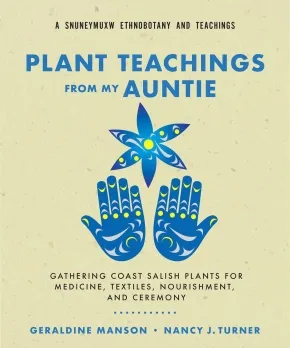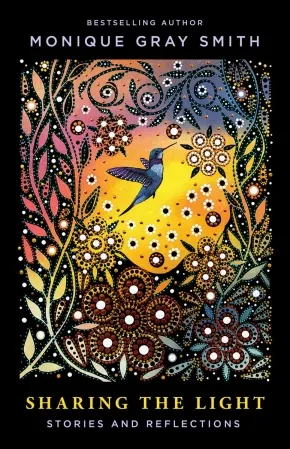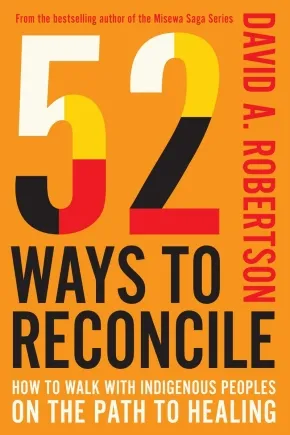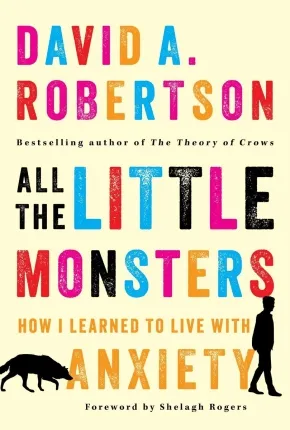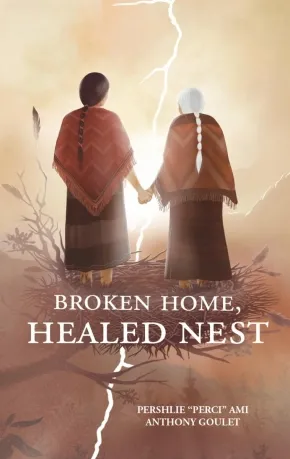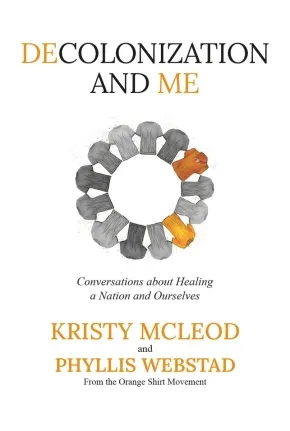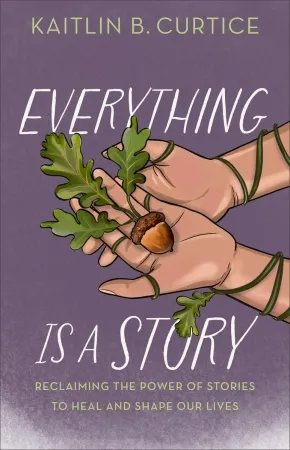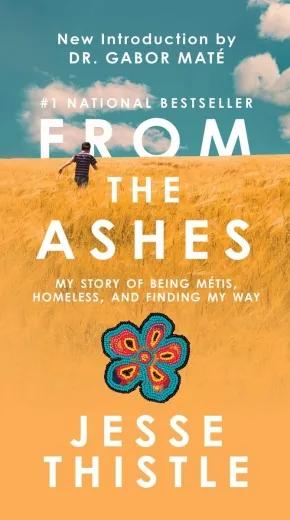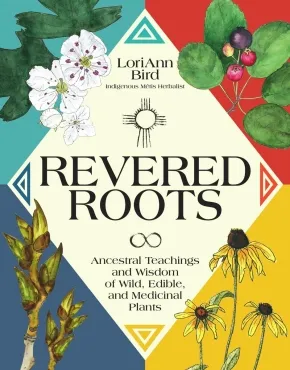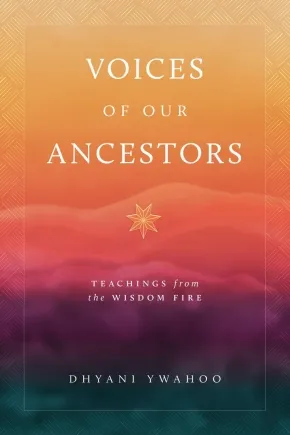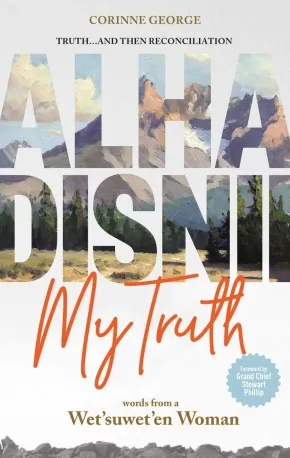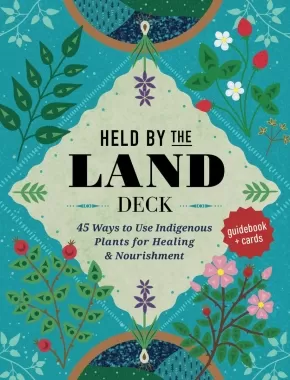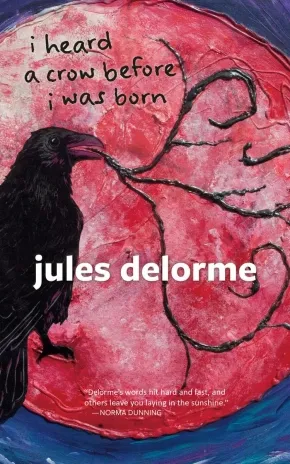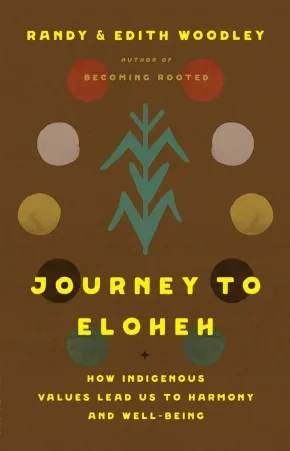Healing
Synopsis:
A Snuneymuxw ethnobotany guide grounded in Indigenous knowledge and deep ancestral connection to the land.
Plant Teachings from My Auntie: Gathering Coast Salish Plants for Medicine, Textiles, Nourishment, and Ceremony is a richly illustrated compendium of the many culturally significant wild foods and herbal remedies found in the traditional territory of the Snuneymuxw First Nation.
Each entry features plant descriptions complete with both their Hul'q'umi'num and botanical names, typical native habitat, and traditional uses. Particular attention is paid to the sacred Western Red Cedar or "tree of life." The book also offers a selection of healing recipes; tips for respectful, sustainable harvesting; ethical and responsible preparation techniques; and a guide to local gathering sites.
Snu'y'ulh refers to teachings handed down through generations. Snuneymuxw Elder and Knowledge Keeper Geraldine Manson, whose traditional name is C'tasi:a, draws on the sacred knowledge passed on to her by her "Auntie Ellen," Dr. Ellen White, also known as Kwulasulwut. Central to these learnings is the fundamental concept or protocol of honoring gifts from the land by gathering and preparing in ways that respect the history, culture, spirituality, and Indigenous knowledge associated with each species.
This powerful work is a rare treasure that will appeal to those seeking to foster greater cultural understanding and ecological responsibility while deepening their commitment to meaningful reconciliation.
Additional Information
96 pages | 9.00" x 7.50" | Paperback
Synopsis:
Uplifting stories, vignettes, and reflections to inspire gratitude, love, joy, and hope in navigating life in a changing, challenging world.
This beautiful and welcoming book can be read cover to cover or used as a daily source of guidance, providing gentle wisdom that inspires and empowers. Through the lens of five transformative practices - gratitude, love, joy, happiness, and hope - bestselling author Monique Gray Smith weaves together short stories, poignant reflections, and thoughtful questions that invite readers to pause and reconnect with their inner light. And as an Indigenous author, Monique brings her cultural wisdom and unique perspective to each offering.
Sharing the Light is a powerful reminder that when we embrace our light and share it with the world, that energy not only transforms us but ripples out to uplift everyone around us.
Additional Information
208 pages | 5.00" x 7.75" | Hardcover
Synopsis:
From bestselling author of the Misewa Saga series David A. Robertson, this is the essential guide for all Canadians to understand how small and attainable acts towards reconciliation can make an enormous difference in our collective efforts to build a reconciled country.
52 Ways to Reconcile is an accessible, friendly guide for non-Indigenous people eager to learn, or Indigenous people eager to do more in our collective effort towards reconciliation, as people, and as a country. As much as non-Indigenous people want to walk the path of reconciliation, they often aren’t quite sure what to do, and they’re afraid of making mistakes. This book is the answer and the long overdue guide.
The idea of this book is simple: 52 small acts of reconciliation to consider, one per week, for an entire year. They’re all doable, and they’re all meaningful. All 52 steps take readers in the right direction, towards a healthier relationship between Indigenous and non-Indigenous people and a time when we are past trauma. By following these steps, we can live in stronger and healthier communities equally, and respectfully, together.
Additional Information
224 pages | 5.00" x 8.00" | Hardcover
Synopsis:
With humour, warmth and heartbreaking honesty, award-winning author David A. Roberston explores the struggles and small victories of living with chronic anxiety and depression, and shares his hard-earned wisdom in the hope of making other people’s mental health journeys a little less lonely
From the outside, David A. Robertson looks as if he has it all together—a loving family, a successful career as an author, and a platform to promote Indigenous perspectives, cultures and concerns. But what we see on the outside rarely reveals what is happening inside. Robertson lives with “little monsters”: chronic, debilitating health anxiety and panic attacks accompanied, at times, by depression. During the worst periods, he finds getting out of bed to walk down the hall an insurmountable task. During the better times, he wrestles with the compulsion to scan his body for that sure sign of a dire health crisis.
In All the Little Monsters, Robertson reveals what it’s like to live inside his mind and his body and describes the toll his mental health challenges have taken on him and his family, and how he has learned to put one foot in front of the other as well as to get back up when he stumbles. He also writes about the tools that have helped him carry on, including community, therapy, medication and the simple question he asks himself on repeat: what if everything will be okay?
In candidly sharing his personal story and showing that he can be well even if he can’t be “cured,” Robertson hopes to help others on their own mental health journeys.
Additional Information
272 pages | 6.00" x 9.00" | Paperback
Synopsis:
“Because you believed me, I began to believe myself. Because of you, I am here.”
[Trigger Warning] Please note this book addresses sensitive topics including suicide, substance abuse, and family violence. While these emotionally challenging realities are held thoughtfully, and with love, this story may be triggering.
Jessica has contemplated suicide for a while now. Grappling with the reverberating grief of losing her beloved grandmother and the trauma of a broken home, young Jessica is reaching a place so far from herself, her community, and the traditional Indigenous teachings she once lived by, it is frightening.
When it all becomes too much, Jessica attempts to take the final step over the ledge. What follows is a journey through the sacred spaces within memory, song, and the spirit world, guided by two playful tricksters—eagles, who happen to have lifetimes of wisdom to share.
With a love of riddles and soaring beyond the edges of possibility, they turn and twist Jessica’s reality until she can finally ground herself in what she has known all along, and allow the love, strength and voice of her beloved grandmother to once again be remembered and heard. The trajectory of Jessica’s life will be changed forever.
From Hopi Elder, Pershlie "Perci" Ami, and Street Outreach Worker, Anthony Goulet, comes a creative, sensitive, and thoughtful approach to the topic of suicide. Combined, they have over forty years of experience in youth development and suicide prevention.
Educator Information
Recommended for ages 14+
Trigger Warning: Please note this book addresses sensitive topics including suicide, substance abuse, and family violence. While these emotionally challenging realities are held thoughtfully, and with love, this story may be triggering.
Additional Information
109 pages | 5.50" x 7.50" | Paperback
Synopsis:
This book invites readers to step into a space of reflection on your personal relationship with truth, reconciliation, and Orange Shirt Day.
Written in response to the increase of residential school denialism, Phyllis Webstad and Kristy McLeod have collaborated to create a book that encourages readers to face their own biases. This book challenges readers through a series of sensitive conversations that explore decolonization, Indigenization, healing, and every person’s individual responsibility to truth and reconciliation. Centered around the Orange Shirt Day movement, and a National Day for Truth and Reconciliation, these conversations encourage readers to unpack and reckon with denialism, biases, privilege, and the journey forward, on both a personal and national level.
Within each chapter, Phyllis Webstad draws on her decade of experience (sharing her Orange Shirt Story on a global level and advocating for the rights of Indigenous Peoples) to offer insights on these topics and stories from her personal journey, which co-author and Métis scholar, Kristy McLeod, helps readers to further navigate. Each section includes real denialist comments taken from social media and Kristy's analysis and response to them. Through empathy-driven truth-telling, this book offers an opportunity to witness, reflect, heal, and be intentional about the seeds we hope to plant for the future, together.
Additional Information
350 pages | 5.70" x 8.25" | Hardcover
Synopsis:
Stories are alive--and shape our personal and collective identities, for better and worse.
In Everything Is a Story, award-winning Indigenous author Kaitlin B. Curtice considers how stories take root in our lives like an acorn becoming an oak tree. Following a story's life cycle, Curtice explores how narratives shape both our inner lives and broader communities. Which stories should we pass on to future generations--and which can we finally let go?
This book invites readers to explore the power of story to liberate or limit, to build compassion or create division. With gentle insight that speaks to people across the spiritual spectrum, Curtice guides us through the art of storytelling as a path toward healing and connection.
With contemplative poetry woven throughout and a foreword by Simran Jeet Singh, Everything Is a Story offers a hope-filled framework for reshaping our lives by reclaiming stories of courage, wholeness, and deep-rooted compassion.
Reviews
"A beautiful book about the stories that make us who we are and connect us to the earth, the cosmos, and one another."- Eboo Patel, founder and president, Interfaith America; author of We Need to Build: Field Notes for Diverse Democracy
"As most good communicators know, we best understand our world not through data or evidence or reason but mostly through stories. That's why this is such a potentially powerful book for those who read it!" - Bill McKibben, author of Here Comes the Sun
Educator Information
Table of Contents
Foreword by Simran Jeet Singh
As We Begin
Part 1: Seed
1. The Origins of Stories
2. Oak Stories
3. Stories Are Mirrors
4. The Shape of Stories
Part 2: Sprout
5. Gathering Stories
6. Stories of Faith and Religion
7. Returning to Our Body's Stories
8. A Maze of Stories
Part 3: Sapling
9. Stories of Aging and Happiness
10. Stories We Tell About One Another
11. Stories of Myth and Othering
12. Stories of Sports and Exploration
Part 4: Mature Tree
13. Stories Are Labels
14. Stories of Land and Food
15. Stories Told in Public
16. Stories of Belief and Letting Go
Part 5: Dropping Seeds
17. Interfaith, Expansive, Futuristic Stories
18. Merging Stories
19. Stories for Healing
20. The Future of Storytelling
Additional Information
208 pages | 5.50" x 8.50" | Hardcover
Synopsis:
In this extraordinary and inspiring debut memoir, Jesse Thistle, once a high school dropout and now a rising Indigenous scholar, chronicles his life on the streets and how he overcame trauma and addiction to discover the truth about who he is.
If I can just make it to the next minute... then I might have a chance to live; I might have a chance to be something more than just a struggling crackhead.
From the Ashes is a remarkable memoir about hope and resilience, and a revelatory look into the life of a Métis-Cree man who refused to give up.
Abandoned by his parents as a toddler, Jesse Thistle briefly found himself in the foster-care system with his two brothers, cut off from all they had known. Eventually the children landed in the home of their paternal grandparents, but their tough-love attitudes meant conflicts became commonplace. And the ghost of Jesse’s drug-addicted father haunted the halls of the house and the memories of every family member. Struggling, Jesse succumbed to a self-destructive cycle of drug and alcohol addiction and petty crime, spending more than a decade on and off the streets, often homeless. One day, he finally realized he would die unless he turned his life around.
In this heartwarming and heartbreaking memoir, Jesse Thistle writes honestly and fearlessly about his painful experiences with abuse, uncovering the truth about his parents, and how he found his way back into the circle of his Indigenous culture and family through education.
An eloquent exploration of what it means to live in a world surrounded by prejudice and racism and to be cast adrift, From the Ashes is, in the end, about how love and support can help one find happiness despite the odds.
Awards
- 2020 Indigenous Voices Awards Winner for Published Prose in English
- Winner, Kobo Emerging Writer Prize Nonfiction
- Winner, High Plains Book Awards
- An Indigo Book of the Year
Reviews
“From the Ashes hits you like a punch in the gut. It’s an unflinching, heartrending and beautifully written story of survival against seemingly impossible odds. But it’s also a book that should make you furious. Thistle paints a vivid portrait of a country seemingly incapable of doing right by Indigenous youth or by those struggling with homelessness, addiction and intergenerational trauma. That he survived to tell this story is truly a miracle. Still, one question haunts me after finishing this powerful and devastating book: How do we ensure that the next generation isn’t forced to navigate a broken system that takes their lives for granted and fails them at every turn? My greatest hope, then, is that From the Ashes will be the wakeup call Canada needs.” — IAN MOSBY, historian and author of Food Will Win the War
Educator Information
Caution: Deals with mature subject matter.
Additional Information
368 pages | 6.00" x 9.00"
Synopsis:
With Indigenous Métis herbalist LoriAnn Bird as your guide, connect with the ancestral wisdom of over 90 wild edible and medicinal plants from across North America.
A purposeful and powerful reference to the lessons, nourishment, healing, and history of our “plant teachers,” Revered Roots shares guidance on exploring, gathering, and reclaiming these long-revered plants as food and medicine. Separated into two sections, LoriAnn first reveals her own journey to understanding and respecting our plant elders. She offers teachings and lessons about remembering our relationship to the plants around us and our responsibility to the earth that sustains us.
The second part of the book is filled with insightful illustrated plant profiles detailing the identification, uses, and Indigenous folklore of some of the continent’s most treasured ancestral plants. Included are edible and medicinal bark, berries, and buds from trees and shrubs, as well as foliage, flowers, and fronds from herbs, “weeds,” and wildflowers; some native to the continent, others introduced generations ago.
Learn about the gifts our Rooted Nation of plants has to offer, including:
- Evergreen tips from spruces, pines, and firs
- Hawthorn berries, leaves, and flowers
- Plantain seeds and foliage
- Oswego tea leaves and blooms
- Slippery elm bark
- Motherwort flowers, stems, and leaves
- Black cohosh roots and rhizomes
- Marshmallow root
- Cottonwood buds and bark
- Plus dozens more
Reclaiming our natural rhythms and connections to the earth we walk on is essential to our health and well-being, both as individuals and as a community. One simple way to do that is by appreciating, respecting, and seeking to understand the plants around us.
Reviews
“With elegant reverence, LoriAnn Bird weaves connections among ancestral herbalist teachings from several lineages. She invites us into our own personal journey with plant medicine, giving us lessons on how to respect and honor the power of plants and their human knowledge keepers. She carefully and lovingly attributes each piece of teaching to its source. This book is a powerful legacy that we need more than ever at this time of healing and reconciliation. May its words fly into the world and land softly in the hearts of all who need them.”—Lori Weidenhammer, author of Victory Gardens for Bees: A DIY Guide to Saving the Bees
“Revered Roots is truly an essential work of art that imparts the sacredness of each plant, in each harvesting step and in the interspecies relationships with all of life. The authentic and grounded nature of LoriAnn Bird comes through the pages to connect us with a sense of belonging and reverence.”—Katrina Blair, founder of Turtle Lake Refuge; author of The Wild Wisdom of Weeds
“LoriAnn Bird, in her book Revered Roots, creates a beautiful story about our plant relatives with our history woven between the leaves of each page. She highlights each being and allows them to tell their story, including who they are, their benefits, uses, ways to eat, look-alikes, and what makes them unique. It's like looking at an old family album and finally knowing who each person is and what their spirit has to offer the world. The book, complete with information about our relatives, wrapped its warm arms around me as I nestled in to read each page, excited to learn more about family. LoriAnn’s voice provides a continuous honoring of our ancestors, our brilliance, and our resilience.”—Jenna Jasek, Shuswap (Kenpesq't) Band member, Director of Indigenous Learning, The Outdoor Learning School
“Revered Roots is a profound journey that gracefully and colorfully intertwines Indigenous wisdom with practical plant knowledge, offering a guide to reconnect with Nature’s green gifts. LoriAnn's heartfelt teachings inspire readers to honor and deepen their sacred relationship with the Earth.”—Dr. Kelly Ablard, Founder and CEO, Airmid Institute
“LoriAnn Bird weaves stories of plants into a tapestry of vivid imagery and teachings, allowing us to experience earth medicine in a way we never have before. Like a family gathered around the table exchanging stories of cherished ones, Lori Ann’s plant musings draw us into an intimate connection with our More-Than-Human Kin. From a small moment in a back alley in East Vancouver to hundreds of years of history from around the world, Revered Roots feels like an equal blend of encyclopedia, history book, and love letter. Get to know plants in a truly profound way through the words of a master storyteller, sister, friend, mother, and plant protector.”—Stephanie Rose, founder of Garden Therapy; author of Garden Alchemy and The Regenerative Garden
“This is a beautiful book on every level; the gorgeous drawings and painting of plants, the photography and images throughout, but also the words and the feelings on each page. Intensely moving and remarkably practical, deeply personal and filled with worldly wisdom, this book offers the reader a glimpse into a whole new way of seeing the nature. With a plant centered focus, through a biophilia lens, the author invites us to re-evaluate and re-vision our own relationships with plants and the natural world. This book is destined to be a classic.”—Chanchal Cabrera MSc, FNIMH, Medical Herbalist; Horticulture Therapist; author of Holistic Cancer Care
“LoriAnn has put a lifetime of collected knowledge into a work that connects people to plants in ways both honorable and honest. Revered Roots extols both the practical and sacred uses of the plants we see around us, while also nurturing our respect for our More-Than-Human Kin and our responsibility to the greater world. It has been a pleasure to be a teacher and herbal mentor to LoriAnn for many years.”—Don Ollsin, Master Herbalist; Conscious Spiritual Elder, Alchemy of Aging; author of Pathways to Healing
Additional Information
240 pages | 8.00" x 9.55" | Hardcover
Synopsis:
Follow the beauty way to generate happiness and good relationships, fulfill your life purpose, manifest peace and abundance, and renew the planet.
Dhyani Ywahoo’s powerful, prophetic, and compassionate voice returns in this new expanded edition of the book that’s sold over 90K copies.
This beloved book has resonated with thousands of spiritual explorers and other readers wishing to ground their activities in harmony and well-being. In this expanded edition, Dhyani Ywahoo continues to be a guiding source of wisdom for all who walk the Beauty Way. As the twenty-seventh generation to carry the Ywahoo lineage of the Eastern Tsalagi/Cherokee Nation, she shares the precious oral teachings of her people that remain timely, powerful, and accessible.
Weaving together Buddhist and Native American traditions, Voices of Our Ancestors offers practical ways of transforming obstacles into happiness and good relationships, fulfilling our life purpose, manifesting peace and abundance, and renewing the planet. The Tsalagi worldview teaches us to infuse each moment with the three fundamental principles of intention, compassion, and doing good. We have the opportunity to let go of fear and aggression and begin to live a life of enlightened consciousness, with tools like:
- Meditations;
- Healing rituals;
- Instructions for working with crystals; and
- Teachings on how to practice generosity and harmony.
Our journey is enriched by Dhyani Ywahoo’s new reflections on the expansion of Native American communities in the United States and how they have cooperated to bring Indigenous voices into larger conversations about conflict resolution, the climate crisis, and the need for inclusion of underrepresented groups and individuals. With a voice that is powerful, prophetic, and compassionate, Dhyani Ywahoo calls on us to become peacekeepers in our hearts and in the world.
Reviews
“Venerable Dhyani Ywahoo embodies wisdom of the Native and Tibetan traditions. Hers is a lifetime spent generously sharing these sacred teachings with students all over the world. I celebrate this new edition of her book, which will hold these precious methods to walk in this world with wisdom and compassion now and for future generations.”—Lama Konchok Sonam, spiritual director of Drikung Meditation Center
“These wisdom teachings are profoundly life-changing for spiritual growth no matter your tradition. Venerable Dhyani Ywahoo is an exceptional spiritual leader and teacher, having forged her own way through traditional Cherokee and Vajrayana teachings. She compassionately embraces her students with her wisdom, offering unique and significant insights. Voices of Our Ancestors is a timeless work and as such it lends support and inspiration continually.”—Shan Watters, artist and author of Mothering the Divine
Additional Information
352 pages | 6.00" x 8.99" | Paperback
Synopsis:
My name is Corinne George. I am Wet’suwet’en with Gitksan lineage from the Gidimt’en (Bear) Clan. This is my truth, and through sharing my truth, I strive for ongoing healing and to continue the journey of reconciliation. As a Wet’suwet’en woman born and raised on what is now known as the “Highway of Tears,” it was not uncommon to receive inferior treatment. There were even times when I was overtly targeted. It has been very common for people to outwardly refuse to acknowledge my existence as a human being. I was always afraid to share my truth because I did not want to be stigmatized. I am the daughter of a residential school survivor and a WWII veteran. As a result of colonization, I have encountered incredible levels of trauma. I need to acknowledge and speak my truth. As I share my pain and experiences, I have gathered self-awareness and every time I speak about my trauma, I heal a little bit more. I do not deserve to be treated like I do not exist. Despite the historical impacts of colonization and trauma, my connections to my ancestral ways and my identity have been critical. This is how I survived and how I strive to thrive.
Educator Information
Recommended for ages 16+.
Additional Information
128 pages | 5.10" x 7.50" | Paperback
Synopsis:
From Indigenous scholar Yuria Celidwen comes a first-of-its-kind book about our aspiration for sustainable, collective flourishing through Indigenous wisdom, traditions, and practices that bridge Indigenous and Western knowledges and ways.
How do we cultivate happiness? When facing the monumental challenges of our world, we often end up disconnecting in order to focus on our mental health. Dr. Yuria Celidwen explains this focus on our own state of mind alone is precisely why so many of us struggle to flourish. “What’s been overlooked is the Indigenous perspective of relationality,” she says. “It is the understanding that happiness is only possible in community, when we cultivate our relationships toward all kin, from human to more-than-human, and to our living Earth.”
Dr. Celidwen’s research shows the tremendous benefit of integrating Indigenous approaches into our approach to well-being, while recognizing the gains made by Western positive psychology, mindfulness, and neuroscience. In Flourishing Kin, she identifies seven key principles found in Indigenous cultures worldwide that embrace virtue, ethical living, and spirituality. Each principle—Kin Relationality, Body Seed, Senshine, Heartfelt Wisdom, Ecological Belonging, Collective Well-Being, and Reemergence—is a seed to flourishing kin, and reveals how we can overcome isolation and climate anxiety, nourish healthy relationships with our communities and environment, and build strong foundations of well-being that elevate our life choices for the benefit of our whole planet.
Sustainable collective flourishing goes beyond optimism or resilience. Offering opportunities for exploration, reflection, and personalized insight, here you’ll find shared storytelling, cultural tradition, and other forms of enhanced contemplative practice like ritual, music, movement, and art to support your journey. Through poetic expression and authentic truth telling, Dr. Celidwen invites us to experience a path to fulfillment that allows us to meet the world in all its complexity with reverence and joyous commitment to participate in the flourishing of all living beings.
Additional Information
256 pages | 6.05" x 8.95" | Paperback
Synopsis:
Have Indigenous plant knowledge at your fingertips with this gorgeously illustrated card deck from Leigh Joseph, an ethnobotanist and a member of the Squamish Nation.
Plants can be a great source of healing as well as nourishment, and the practice of growing and harvesting from trees, flowering herbs, and other plants is a powerful way to become more connected to the land. The Indigenous Peoples of North America have long traditions of using native plants as medicine as well as for food. Held by the Land Deck includes 45 cards of indigenous plants and their properties and a 48-page booklet to guide you along the way. Here are some of the things you will find:
- Tips to build your own home apothecary
- Notes on how to mindfully harvest and connect to the land you’re on
- Recipes for infused oils and salves
- A botanical glossary to help out with some of the more technical language
- Checklists for safe and sustainable harvesting
This beautifully illustrated card deck includes plants that are culturally significant to the Pacific Northwest, including Western Red Cedar, Devil’s Club, Broad-Leaved Plantain, Camas, Wapato, and Red Laver. Special features in the booklet include recipes for food and beauty products along with stories and traditions around the plants.
This elegant, full-color card deck and booklet is your go-to guide for Indigenous plants and will give you new insights into the power of everyday nature.
Additional Information
48 pages | 4.50" x 5.90" | 45 Cards and 48-Page Booklet
Synopsis:
i heard a crow before i was born.
i heard tsó:ka’we before i was born.
i heard a crow before i was born opens with a dream-memory that transforms into a stark, poetic reflection on the generational trauma faced by many Indigenous families. Jules Delorme was born to resentful and abusive parents, in a world in which he never felt he belonged. Yet, buoyed by the love shown to him by his tóta (grandmother) and his many animal protectors, Delorme gained the strength to reckon with his brutal childhood and create this transformative and evocative memoir.
Across chapters that tell of his troubled relationships, Delorme unwraps the pain at the centre of his own story: the residential schools and the aftershocks that continue to reverberate.
In this stunning testament to the power of storytelling — to help us grieve and help us survive — Delorme tells the story of his spirit walk as he embraces the contradictions of his identity. As he writes, “i heard a crow before i was born is a man looking back, and dreaming back, and seeing that life, in whatever form it takes, however harsh it might seem, is beautiful.”
Reviews
“Jules Delorme is an unconventional storyteller and writer. His exploration of self through the eyes of being ‘half white on the reserve and half Indian in the city’ speaks to his vast experience as a Kanien’kehá:ka man in Canada. Jules has lived and continues to live the life of a man who has leapt over every hurdle that life places in front of him. To be able to write of his life in the way that he has shows his determination. Thank you, Jules, for taking us all on your spirit walk.” — Norma Dunning, award-winning author of Tainna, July 2024
Additional Information
164 pages | 5.00" x 8.00" | Paperback
Synopsis:
Rooted in ten Indigenous values, this thoughtful, holistic book-written by Randy Woodley, a Cherokee descendant recognized by the Keetoowah Band, and Edith Woodley, an Eastern Shoshone tribal member-helps readers learn lifeways that lead to true wholeness, well-being, justice, and harmony.
The pursuit of happiness, as defined by settlers and enshrined in the American Dream, has brought us to the brink: emotionally, spiritually, socially, and as a species. We stand on a precipice, the future unknown. But Indigenous people carry forward the values that humans need to survive and thrive. In Journey to Eloheh, Randy and Edith Woodley help readers transform their worldviews and lifestyles by learning the ten values of the Harmony Way. These ten values, held in common across at least forty-five Indigenous tribes and nations, can lead us toward true well-being: harmony, respect, accountability, history, humor, authenticity, equality, friendship, generosity, and balance. By learning, converting to, and cultivating everyday practices of Eloheh--a Cherokee word meaning harmony and peace--we have a chance at building well-being and a sustainable culture.
In this riveting account of their own journeys toward deepening their indigeneity and embodying harmony, Edith, an activist-farmer, and Randy, a scholar, author, teacher, and wisdom-keeper, help readers learn the lifeways of the Harmony Way. The journey to Eloheh holds promise for all of us, Indigenous or not.
We know the Western worldview is at odds with a sustainable Earth, a just common life, and personal well-being. Together we can convert to another way of living--one that recognizes the Earth as sacred, sees all creation as related, and offers ancestral values as the way forward to a shared future.
Reviews
"Edith and Randy Woodley's passion and persistence to create spaces of community and care are inspiring. A blend of storytelling, theology, and guidance harvested directly through Indigenous wisdom, Journey to Eloheh reminds us to stay true to the path of kinship and belonging, and to never give up on justice and peacemaking in the world. I highly recommend this book for anyone who is searching for a way to be a better relative on this earth or to fight for a better reality for future generations. This book will help you get there." --Kaitlin B. Curtice, award-winning author of Native and Living Resistance
"Spiritual journey as autobiography: like a Navajo weaver, Journey to Eloheh skillfully connects Native American theology and personal experience into a way of life. If you are looking for your own path, Edith and Randy Woodley's story is a good place to begin." --Steven Charleston, author of Ladder to the Light, Spirit Wheel, and We Survived the End of the World
"There is so much we can all learn from the wisdom of Indigenous culture. In this book, Randy and Edith Woodley invite us to join them on a journey of learning a different way of living that leads to wholeness, abundance, and peace. They generously share their life experience and spiritual insights to show us a better path toward harmony with the whole of creation. I highly recommend it!" --Dr. Brenda Salter McNeil, author of Becoming Brave and Roadmap to Reconciliation 2.0
"A practical antidote to despair, hopelessness, and aimless consumption, this book offers a robust and healing path to well-being for all of us. The Woodleys are wise and trustworthy guides for restoration and embodied goodness within the community of creation." --Sarah Bessey, author of Field Notes for the Wilderness: Practices for an Evolving Faith
"Randy and Edith Woodley write with insight and wisdom from their years of experience. They have prophetic voices that draw attention to the needs of all of our relatives. Their voices rise out of difficult situations in which they have done more than survive; they are showing how to flourish in an ever-changing world." --Ray Aldred, director of the Indigenous Studies Program, Vancouver School of Theology
"For many years, I have considered Randy Woodley one of my teachers. His books, lectures, and personal conversations--together with his humble, yet bold, spirit as a teacher--have enriched and challenged me. His new book, co-written with his wise and eloquent wife, Edith, is a masterpiece, a book I would recommend to anyone and everyone. It beautifully combines the sharing of their life-story with the essence of their lifeway, articulated in ten powerful Indigenous values that are as deeply spiritual as they are deeply practical." --Brian McLaren, author, teacher, and activist
Educator Information
Keywords / Themes: Well-Being; the Harmony Way (Eloheh); Ten Eloheh Values; Indigenous Knowledge, Indigenous Values; Personal Growth.
Additional Information
264 pages | 5.75" x 8.75" | Hardcover

